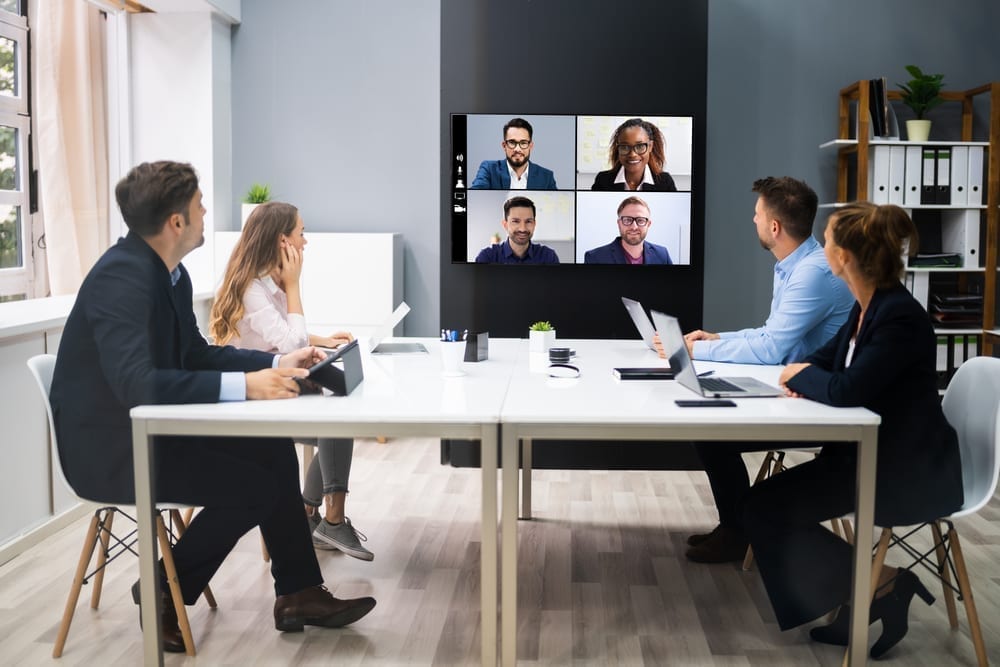For certain kinds of legal issues or cases, arbitration hearings are far more convenient and expedient for everyone involved, attorneys included. Average arbitration cases tend to be resolved much faster than district court cases that go to trial, and are also known to be cheaper and much less complex than situations where litigation is needed – but just like any other form of court proceeding, arbitration requires proper preparation.
At Phoenix Deposition Services, we’re proud to offer not only a huge range of video deposition and video conferencing services, but also assistance with reporting for hearings and arbitrations of several varieties. And in the past year, the demand for remote and video forms of arbitration has skyrocketed around the country. If you’re participating in such a remote arbitration, what are some important themes to prepare for to ensure the process goes smoothly and works to your benefit and that of your client? Here’s a primer on best practices for virtual arbitrations.
Security Themes
First and foremost, cybersecurity is a vital theme that any attorney taking part in a video arbitration, deposition, conference or other legal process must be careful to maintain. All arbitrations should be arranged with a password protection and a unique meeting identifier, plus we strongly recommend dual authentication to prevent mistakes or malicious access attempts.
If possible, look to distribute the meeting password to the relevant participants separately from the meeting ID number. This is another form of dual authentication that makes it tougher for any dishonest individuals to attempt to breach your security, plus will make those who are taking part in the arbitration feel more at ease. These are vital baseline concepts for any video deposition, arbitration or proceeding of any kind.
Lighting and Related Themes
Next up, especially for those who regularly conduct virtual proceedings like these, is to arrange your “studio” setup. We put that word in quotes because we’re realistic and understand that most attorneys won’t be able to set up a true professional video studio in their home or office – that said, there are several simple concepts you can hit on to ensure the viewing and audio experience is high for everyone.
For starters, ensure the location you’ll be filming in has good light, preferably natural light. Webcams and related online video formats struggle to provide good picture when there isn’t enough light, and you’ll deal with shadows and grainy footage if this is the case. If it’s possible, try to test out your video screen to ensure you have the proper light before the arbitration hearing begins – do this on the morning before the arbitration itself, so you know the light conditions will be similar later in the day. If your screen is too dark, you may need to add some light with a mount, lamp or related item.
In addition, confirm you have a proper and appropriate background, plus clear any items from the picture that might be distracting. Be sure there’s no chance of someone walking behind your picture to disrupt the proceedings, plus that there’s no risk of audio interruptions on your end, even if this involves using headphones or muting yourself when you aren’t speaking. At this point, with most folks having over a year of experience with virtual meeting types, these kinds of mistakes should be easily avoided.
Be Professional
Just like in any in-person arbitration or other legal proceeding, it’s vital to be professional and smart about how you present yourself at every moment. This begins with the way you dress – solid colors without anything flashy, but the normal suit and tie setup is expected in most cases.
In addition, plan to arrive into the virtual session early. This ensures you’ll be able to handle any log-in or technical problems that might be taking place before other participants have shown up.
Eyes and Speech
Any good attorney is well aware of the value of eye contact during many proceedings, and while a remote arbitration is certainly different from an in-person one, this theme remains. This might be an area that’s a bit difficult at first, as research has shown that some people become a bit fixated on their own image on the screen rather than looking into their camera – but hopefully the last year and change has prepared you for this. Do your best to always look at the camera when speaking; some will post a photo near their webcam they can look at to help here.
On top of this, just like any court proceeding, you should speak clearly and concisely. In fact, just in case of any audio issues or lag, you should be even more accurate and concise than you might normally be. Also, try to avoid speaking over other participants, as virtual audio may not pick up both of you and could require the court reporter to halt the proceedings and ask for a clarification.
Value of Repetition
If you’re like most attorneys who handle arbitrations regularly, this won’t be your first virtual session – nor your last. The phrase “practice makes perfect” exists for a very good reason, and it’s one you should take to heart if you know you’ll be participating in regular video arbitrations or other proceedings. Practice speaking into the webcam, for instance; many will record a video of themselves so they can watch it back later and take notes. You might even consider a mock deposition or day-before practice session.
For more on how to properly prepare for and execute a video arbitration, or to learn about any of our court reporter or video deposition services, speak to the staff at Phoenix Deposition Services today.
